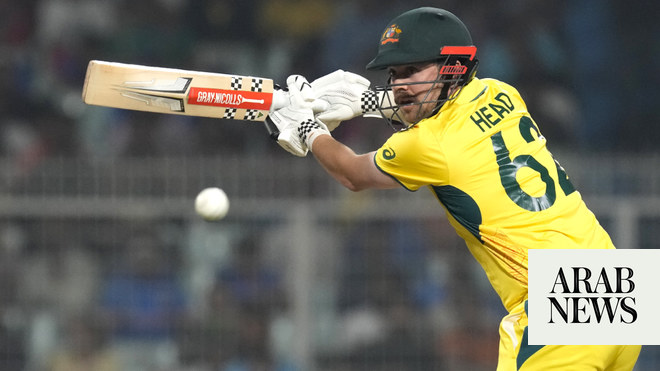
anted: someone to step in and turn around a big and failing multilateral organisation. The post involves relocation to Geneva where the successful candidate will require the cunning of a Machiavelli, the political skills of Nelson Mandela and the thick skin of a rhinoceros. Plus a good dollop of luck.
The job description for director general of the World Trade Organization did not quite go like that, but none of the eight people who have put themselves forward to succeed Brazil’s Roberto Azevêdo are in any doubt as to the extent of the challenge.
Ground down by seven years in the role, Azevêdo quit the WTO on Friday a year early and has moved seamlessly to a job on the board of the US soft drinks company Pepsi. The first phase of the struggle to replace him ends on 7 September by which time it is thought the eight candidates – including the former UK international trade secretary Liam Fox – will have had enough time to make their pitches and the selection process begins. Over the next two months the intention is to whittle the eight down to five and then two before the lucky – or perhaps unlucky – winner is announced.
The WTO’s problem is simple: it has two functions – to negotiate global trade deals among its 164 members and to act as the arbiter of trade disputes – but has struggled to do either in recent years.
Next November, it will be 20 years since the WTO launched the Doha development round, with the avowed aims of extending free trade to new areas such as services and expanding the benefits to the least developed countries. Officially, the intention is still to complete the Doha round but in reality the members gave up on the idea years ago.
Under Azevêdo, the WTO has tended to focus on plurilateral deals, essentially coalitions of the willing where small groups of countries try to cut deals in areas, such as e-commerce, where there is some prospect of finding agreement.
Finding common ground for anything more than a limited agenda of liberalisation has proved impossible. The US, backed by the EU, says China, now the world’s second-biggest economy, should no longer get special treatment for its trade. Beijing says it should because its per capita incomes are much lower than those in the west.
This argument has been rumbling away for years. The issue that has brought the WTO’s problems to a head involves the seemingly arcane question of how to settle trade disputes. Under the WTO’s rules any argument between member states over alleged unfair practices are decided by a panel, with the losing side having the right to appeal.
The rulings made by the WTO’s appellate body have become controversial. The US, and other countries, are unhappy about the tendency of the judges to make rulings that make trade law rather than simply interpret the existing rules. So upset has Washington become over what it sees as an infringement of its sovereignty that it has blocked the appointment of new judges to the disputes panel, depriving it of a quorum.
Add in a collapse of global trade caused by the Covid-19 pandemic and the increasingly tense trade relationship between the US and China and all the ingredients are in place for a perfect storm. The atmosphere in Geneva has become so poisonous that it proved impossible for members even to agree which of Azevêdo’s four deputies should act as temporary WTO head while a new director general was chosen. As a result, all four are jointly in charge.
Richard Kozul-Wright, the director of the globalisation divisions at the United Nations Conference on Trade and Development, said: “The WTO has seen a huge haemorrhaging of trust on all sides. It doesn’t need a technocrat. It needs someone who can restore a bit of faith in the institution. That’s what’s needed.”
The candidate who ticks the right boxes, Kozul-Wright says, is Ngozi Okonjo-Iweala, a former Nigerian finance minister with a reputation as a skilled political operator and fighter against corruption. Her strongest rival is the Kenyan trade expert Amina Mohamed, who has worked at the WTO. Either would be the first African and the first woman to hold the post.
The chances of one of the two getting the job are relatively good, but is likely to have as much to do with global politics as with their suitability. Mexico’s candidate will probably be ruled out because a Latin American has just held the post. Fox is supported by the US, which according to one Geneva insider might be the kiss of death. The Moldovan, Saudi Arabian and Egyptian candidates lack an obvious power base. That leaves the South Korean trade minister, Yoo Myung-hee, who would be a good compromise candidate were it not for her country’s fraught relations with two big neighbours: China and Japan.
Every candidate has said the WTO needs reform if it is to survive, but according to Kozul-Wright that might not be sufficient. The hostility towards China exists across the US political spectrum and will not disappear if Joe Biden defeats Donald Trump in November. Most trade, he says, takes place within three blocks – east Asia, North America and western Europe, and involves big corporations struggling to secure and maintain intellectual property rights.
When it was created a quarter of a century ago, the WTO pledged to raise living standards, ensure full employment and ensure there was enough effective demand to facilitate open trade in goods and services. “No one thinks it has anywhere lived up to its claims,” Kozul-Wright said.












